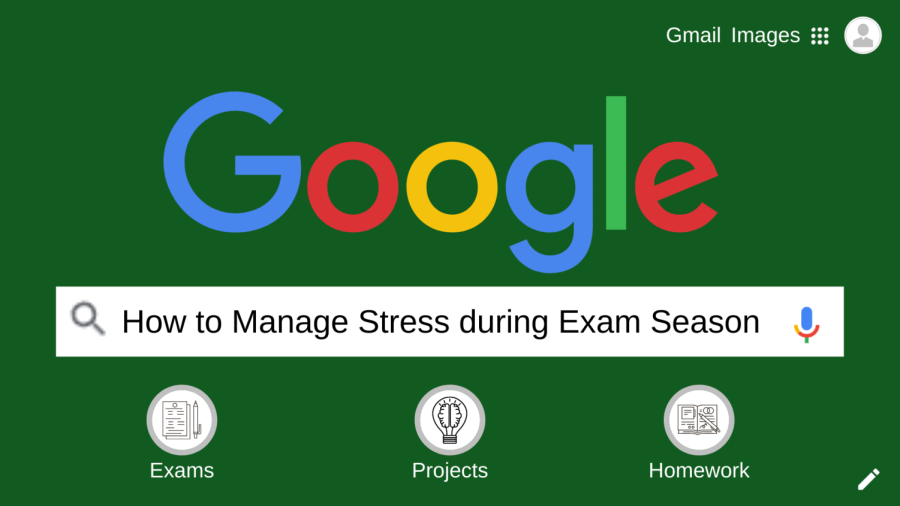How to Manage Stress During Exam Season
April 29, 2022
Spring seems like the season to finally get some relaxation with the weather getting warmer, the sun escaping the clouds, and the flowers blooming, but for students it signals end of the year standardized testing. SATs, AP Exams, and EOCs swarm students and the amount of pressure and stress students are under increases as well. Almost 80% of students often feel stressed throughout the school year and 31% of students list final exams as the major contribution to their stress.
Being under tons of stress is unhealthy for high school students, especially at an age where the human brain is still developing. Holding in stress for a long period of time, can lead to health problems such as obesity and high blood pressure and is also linked to the development of mental illnesses. Students turn to their phones and social media as an escape from the stress they are under but this leads to unproductiveness and puts students under more stress when they forget to study for an exam or attempt to finish a month-long project the night before it’s due.
Most students are not aware of the methods they can use to manage their stress. There are multiple coping strategies that have proven to be effective in reducing stress and can improve productivity. These strategies don’t only need to be applied for school but could be applied for other areas of life.
Self Care: According to the World Health Organization, self care is when “people do for themselves to establish and maintain health, and to prevent and deal with illness.” Taking a quick quick run, reading a book, or setting up a picnic, are all strategies that can handle stress. Taking time for yourself can help improve your emotional health and well being. Self care is often mistaken for being “lazy”, but practicing self care is more of a lifestyle choice compared to laziness. Laziness removes energy and motivation, while practicing self care boosts it.
Setting Goals(Realistically): Setting the right goals can make things less overwhelming to achieve. The goals you should set should be making things less stressful instead of adding more to the pile. If you set unrealistic goals and cannot achieve them, it could make you feel discouraged and set you back. If you have a long term goal you would like to achieve, try splitting it up into short term goals. An example of a long term goal could be receiving an “A” on a final exam. A short term goal you could take from this is deciding to study for the exam for two hours every weekend. Reward yourself for every time you achieve this goal like treating yourself to a dessert or going out. This short term could later progress to studying for the test 30 minutes every day. Taking small steps makes it easier to achieve long-term goals in the long run.
Sleep: Teens are expected to get 8-10 hours of sleep but according to the Better Sleep Council, more than 70% of teens receive seven or less hours of sleep. When students feel overwhelmed with school work and exams, their number of hours of sleep start to cut down. Not only does this contribute more to stress but it also has negative consequences. These consequences can vary from poor performance in school to developing mental health problems. The CDC (Centers of Disease and Control) claims: “students should get the proper amount of sleep at night to help stay focused, improve concentration, and improve academic performance.” Getting enough sleep is essential for minimizing stress, especially during exam season. To get more sleep, try to complete your studying an hour before you sleep so you can minimize the time you stay up completing assignments, etc. This can increase productiveness and help you catch up on your sleep.
Social Media Break: Common Sense Media found in a survey that most teens spend almost up to 7 hours a day on social media. Not only does social media increase stress in students but it also makes them procrastinate more. Instead of scrolling through social media, students could use that time to complete a homework assignment they have been meaning to finish or study for an upcoming test. Taking a break from social media by limiting screen time or simply just deleting the apps on your phone, can have a drastic effect on how much you can get done.


